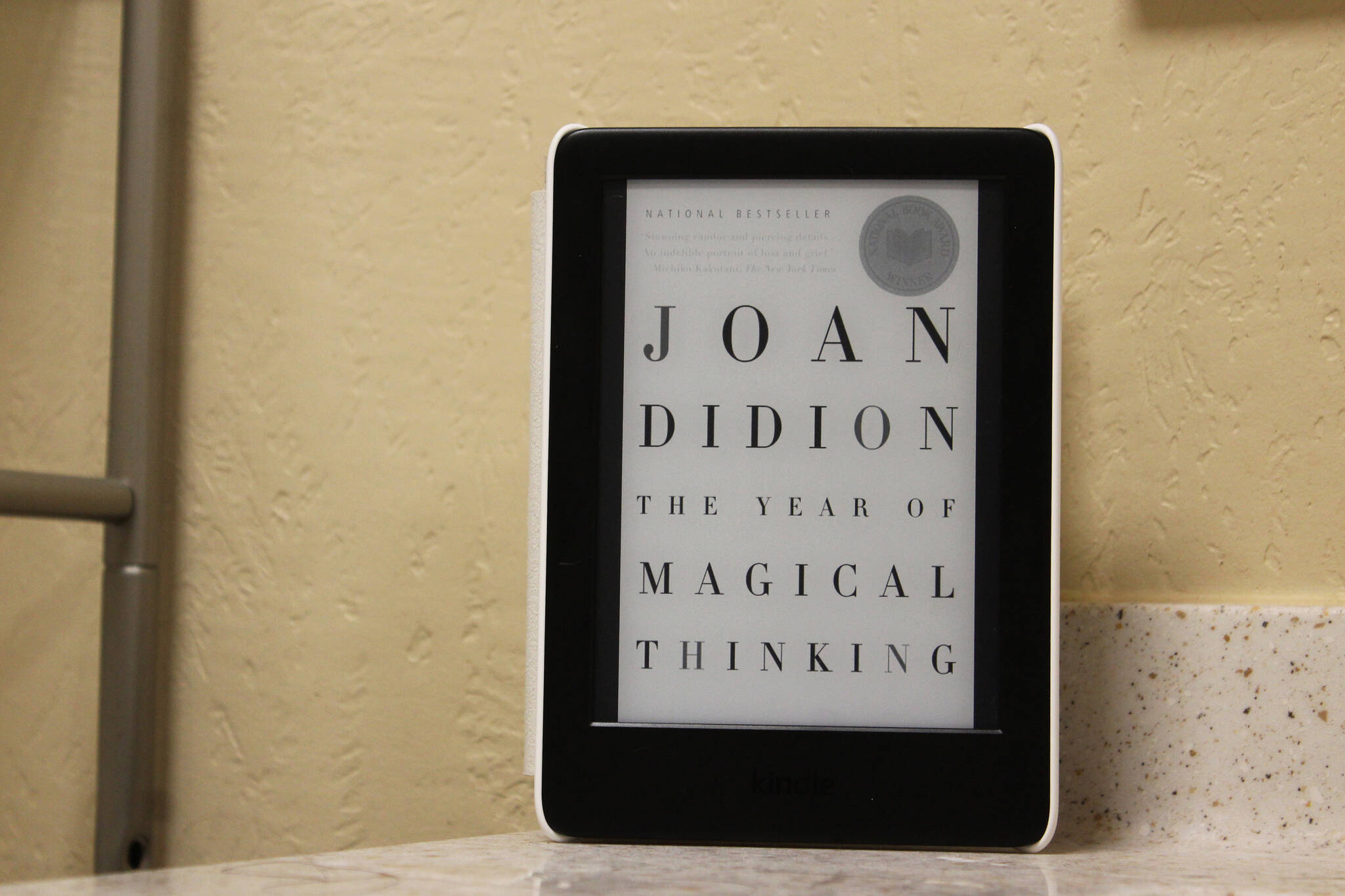It took the death of Joan Didion for me to realize I’ve never read anything by Joan Didion. She’s a figurehead of sorts: revered by many as a standard-setting writer known for offering a fresh perspective on the world, and yet absent from my library. This is all to say that the last week of 2021 felt like a good time to pick up one of her books.
The prolific “new journalist” famed for her raw tales of San Francisco hippie dens and biting political observations turns her sharp observations inward for “The Year of Magical Thinking,” as she grapples with the aftermath of her husband’s death. It’s timely yet timeless, candid and courageous, heartbreaking and haunting and presents a tender account of Didion’s efforts to unpack what it means to mourn.
The 2005 memoir was written after the sudden death of Didion’s husband, John Gregory Dunne, from a massive heart attack, and was published just two months before the death of their daughter, Quintana. Didion remembers the death of her daughter in a separate work, “Blue Nights,” which was published in 2011.
Didion’s own death comes as the world continues to grapple with the loss of 5.4 million people to the COVID-19 pandemic, and the resulting grief inflicting the families, friends and colleagues left behind. In trying to understand her own cycle of grief, Didion also provides a foil for how to grieve her.
Part of what makes “The Year of Magical Thinking” so powerful is the pulsing vulnerability present on each page. Readers get the sense that Didion is writing less for an audience, and more for herself: as a way to cope, understand and move beyond.
A recurring motif is that of the “vortex,” which Didion describes as an unpredictable wave of memories that is triggered by things that remind her of her husband and daughter, thereby knocking daily life off course and sucking her back into the cycle of grief.
“The way you get sideswiped was by going back,” Didion writes of the vortex.
Above all, “The Year of Magical Thinking” is tremendously sad. What overshadows Didion’s palpable anguish and vivid heartbreak is the candor with which she shares her experiences and the vulnerability she offers to readers. Each sentence is purposeful and courageous; in Didion’s own grief are comfort and recognition for readers with whom her words resonate.
“Grief turns out to be a place none of us know until we reach it,” she observes.
And yet. For all of the words Didion offers in remembrance of her husband, equally strong is the commitment she makes to herself that she will continue to live. Almost a year after the death of John, Didion recalls hosting a Christmas Eve dinner, a tradition they used to have together. This time, Didion did it on her own.
“I was also doing it for myself, a pledge that I would not lead the rest of my life as a special case, a guest, someone who could not function on her own,” Didion writes.
She leaves readers with an assurance that, for her, death offers a sort of reunion with those she’s lost.
“In my unexamined mind there was always a point, John’s and my death, at which the tracks would converge for a final time.”
Joan Didion died at age 87 on Dec. 23, 2021 from complications with Parkinson’s disease.
Ashlyn O’Hara can be reached at ashlyn.ohara@peninsulaclarion.com.
Off the Shelf is a bimonthly literature column written by the staff of The Peninsula Clarion that features reviews and recommendations of books and other texts through a contemporary lens.

